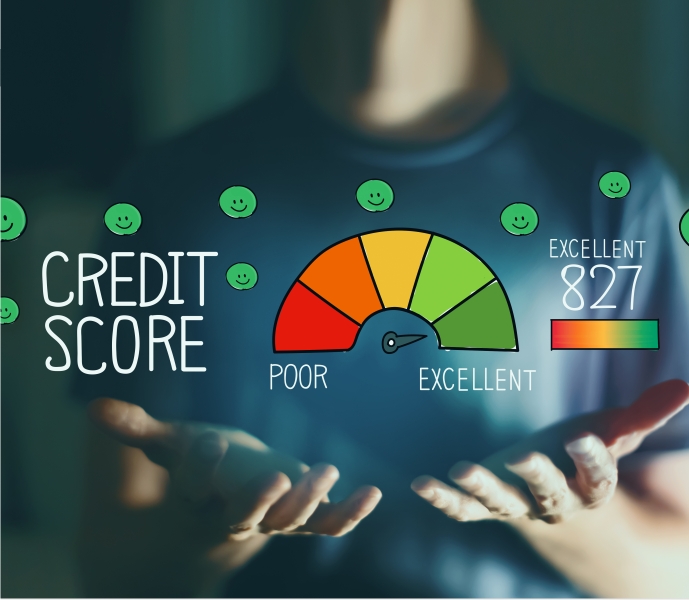Credit score and CIBIL score are commonly used terms when talking about loan products. However, what exactly do these terms mean? Are they one and the same? Or is there a difference between a credit score and a CIBIL score? Let's find out.
What is a credit score?
A credit score determines a borrower's creditworthiness, and hence, it is extremely critical information for both lenders and borrowers. After careful evaluation of multiple factors like the borrower's credit history, credit utilisation and other important financial records, a three-digit credit rating, anywhere between 300 and 900, is obtained.
RBI has authorised four credit bureaus. These credit bureaus, regulated by the Reserve Bank of India, determine credit reports and credit scores based on an individual's financial health. One of these agencies is the Credit Information Bureau (India) Limited, known as CIBIL for short. The credit rating provided by CIBIL is called a CIBIL score.
Why is credit score so important?
Your credit score determines your creditworthiness, which explains your debt repayment ability to the lenders. A higher credit score means that you are a low-risk borrower. Needless to say, lenders prefer such customers and provide them with better loan offers. For example, you can borrow a higher loan amount with lower interest rates. The loan tenure may also be better. This is why your credit score is such an important aspect of your financial records.
Apart from managing borrower-risk exposure, lenders also make faster and more informed decisions, track a borrower's credit performance, and steer clear of identity fraud in the loan industry.
How do you view credit score?
A free credit score check is available on various financial websites. Follow these simple steps to easily get a free and quick credit score check on L&T Finance official website or the PLANET App:
STEP 1: Go to L&T Finance website or PLANET App on your mobile
STEP 2: Navigate to the credit score page
STEP 3: Provide the required information and submit
Your free credit score check will be complete, and the results of your request will be instantly displayed to you.
Similarly, you can check your CIBIL score on the CIBIL website. All you need to do is go to the official website of CIBIL and click on 'Get Your Free CIBIL Score'. Input all the necessary details, and your free CIBIL score and report will be available for viewing.
Apart from the CIBIL score, you can view credit score on the websites of other credit bureaus as well. Here are a few important things to know about the credit bureaus and their functioning:
• Lenders such as banks and NBFCs do not favour any specific credit bureau and hence, send your data to all four licensed credit bureaus of India, which includes CIBIL
• Lenders check your CIBIL score, along with the credit scores obtained from the other three credit bureaus
• Credit ratings computed by all four credit bureaus are considered valid
• Every credit bureau has its own algorithm to determine your credit rating, and these algorithms may vary from one organisation to another
• So, a minor difference between the credit ratings calculated by these bureaus is not only acceptable but also expected
• Usually, this difference is somewhere around 50 to 60 points
An ideal credit score is anything above 700 points, whereas a poor credit score is below 550 points.
Now, what if your credit score is not up to the mark? The good news is that you can improve your credit score. All you need to do is practice good financial habits to create a healthy financial record and build a better credit score. Take a look at some important points on how to improve credit score.
Improving your credit score: some do's and don'ts
Although it is possible to improve your credit score, practicing financial discipline can be a task for many. That's why developing good financial habits early on is a better way to create a favourable financial history. Some things you can do are:
• Always pay all your bills in a timely manner; avoid unnecessary delays
• If you use credit cards, keep your credit utilisation to a minimum; always pay credit card bills within the due date. In case you miss it for a valid reason, remember to settle the account as soon as possible
• In the case of existing loans, avoid missing EMIs; borrow a loan only when required and avoid using loans for luxury expenses
• Avoid unnecessary credit inquiries as that affects your credit history
• Keep a regular tab on your credit history



















